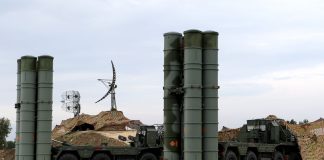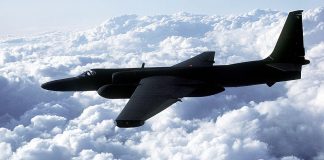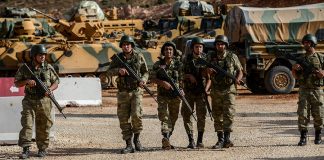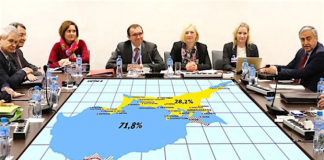Turkey
Did an undercover agent incite the Berlin Christmas Market attack?
By Dietmar Henning
26 October 2017
Last week, the Berliner Morgenpost and Radio Berlin Brandenburg (RBB) reported that the perpetrator of the Berlin Christmas...
Crise systémique occidentale 2017-2019 – Le Dieu-dollar contre la Grande Tentation...
Source: Global European Anticipation Bulletin, pour le LEAP
Septembre 2017.
Qatar, Corée du Nord, Mer baltique, risques de 3ème guerre mondiale… les rodomontades militaires dont nous...
NATO official: Turkey faces ‘consequences’ if purchase of S-400 completed
By Aaron Mehta
WASHINGTON — A top NATO official has warned of “necessary consequences” for Turkey should the alliance member purchase a Russian...
Trump’s Scary Nuclear Doctrine
Pleasing Israeli Prime Minister Netanyahu and terrifying almost everybody else, President Trump is threatening nuclear war against North Korea and, by implication, war with...
Turkey sees ‘village uprising’ as rural areas hit hard by liberal...
By Zülfikar Doğan
Turkey's farmers, livestock producers and their related unions are emerging as a new and unexpected mass opposition in the country, staging rallies and marches...
Triple assassinat sans commanditaire apparent
par Jean-Paul Champseix
Le titre de l’ouvrage pourrait être celui d’un roman, inspiré d’Edgar Poe. Pourtant, l’affaire est bien réelle et l’enquête qui est menée...
Cuban Missile Crisis: 14 Days When the World Was on the...
On October 14, 1962, 55 years ago, a US Air Force U-2 spy plane took pictures confirming the deployment of Soviet R-12 missiles on...
Putin Is Filling the Middle East Power Vacuum
By Henry Meyer and Donna Abu-Nasr
3/10/2017
The Israelis and Turks, the Egyptians and Jordanians -- they’re all beating a path to the Kremlin in the...
Damascus demands ‘immediate & unconditional’ pullout of Turkish troops from northwest...
Syria demands an immediate pullout of Turkish troops, whose deployment to Idlib province amounts to “flagrant aggression,” the Syrian Foreign Ministry said as quoted...
Man of Straw
By William Mallinson
It is perhaps typical that the only person whom the pro-Turkish government brigade could wheel out for yet another partitionist tirade on...









